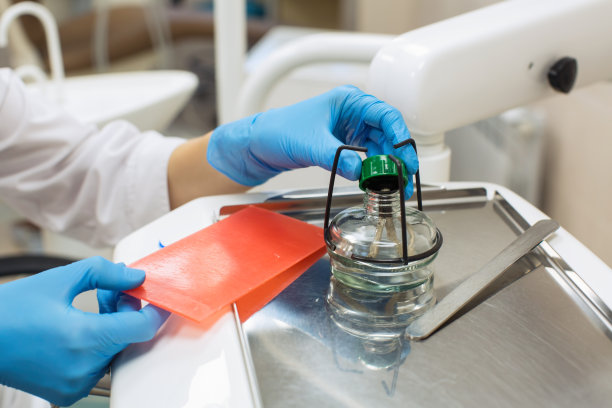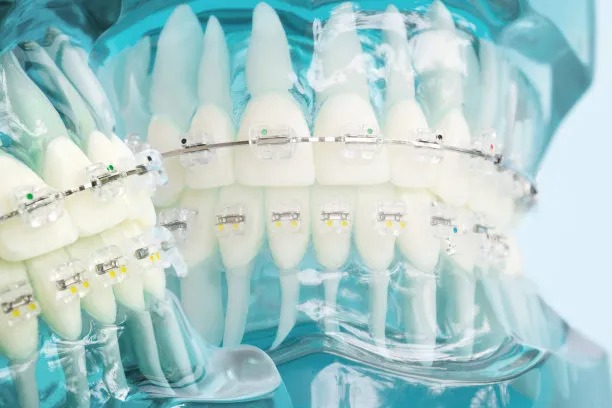Summary: Dental implantation is a sophisticated and sensitive procedure that requires careful planning and execution to ensure successful results. This article delves into essential considerations and precautions that practitioners and patients alike should adopt. We explore the critical factors influencing implant success, including patient evaluation and selection, surgical technique and precision, postoperative care and follow-up, and the importance of ongoing maintenance and monitoring. Understanding these areas provides a comprehensive framework for achieving optimal dental implant outcomes, minimizing risks and complications.
1. Patient Evaluation and Selection Process

Before beginning the dental implant procedure, a thorough patient evaluation is crucial. Dental professionals should perform a comprehensive assessment that includes a detailed medical history, dental condition analysis, and any lifestyle factors that may affect healing, such as smoking or chronic illnesses. This initial step helps determine if the patient is a suitable candidate for implants.
Additionally, advanced imaging techniques, such as 3D cone beam computed tomography, can aid in visualizing the anatomical structure of the jawbone, sinus cavities, and surrounding tissues. These insights guide the dentist in designing an appropriate treatment plan tailored to the individual needs of the patient.
Finally, engaging in open communication with the patient about their expectations, concerns, and willingness to adhere to postoperative care is vital. Patients must understand the procedure, potential risks, and the importance of following instructions to optimize the chances of implant success.
2. Surgical Technique and Precision
The surgical phase of dental implantation requires meticulous attention to detail. Surgeons should apply refined techniques to ensure precise placement of implants in optimal positions within the jawbone. The use of surgical guides can significantly increase accuracy during the procedure, leading to better aesthetic and functional results.
Moreover, maintaining a sterile environment is essential to prevent infections that can compromise the success of the implant. Utilizing appropriate sterilization methods for instruments and ensuring proper infection control measures will enhance patient safety and minimize potential complications.
Surgeons should also assess the quality and quantity of the bone before the procedure. In cases of insufficient bone density, bone grafting or using alternative implants may be necessary to achieve stability and longevity. Personalized approaches will lead to more predictable outcomes.
3. Postoperative Care and Follow-up
Postoperative care is a critical aspect of successful dental implantation. Patients should receive clear guidelines on how to care for their implants, including diet restrictions and oral hygiene practices. Following postoperative protocols helps minimize complications and promotes healing.
Regular follow-up appointments provide an opportunity for the dental professional to monitor the healing process and make necessary adjustments. These visits should include visual examinations, radiographic assessments, and discussions regarding any concerns the patient may have experienced during recovery.
Patient education is also a vital component of postoperative care. Informing patients about signs of complications, such as swelling or unusual pain, enables early detection and intervention, thus safeguarding the investment made in their oral health.
4. Ongoing Maintenance and Monitoring
The success of dental implants extends beyond initial placement; ongoing maintenance is key to ensuring their longevity. Patients should schedule regular dental check-ups at least twice a year to allow the dental team to perform professional cleanings and monitor the health of surrounding tissues.
Moreover, it is essential to emphasize the importance of maintaining good oral hygiene at home. Patients should be encouraged to brush and floss diligently around the implant site to prevent infections and complications that could jeopardize the implant’s integrity.
Lastly, addressing any changes in the patient’s health status or medications is crucial, as these factors can influence implant longevity. Regular communication between the patient and the dental team fosters a partnership focused on preserving the functionality and aesthetics of the implants for years to come.
Summary:
Successful dental implantation hinges on several key factors, beginning with thorough patient evaluation and selection, continuing through precise surgical execution, diligent postoperative care, and a commitment to ongoing maintenance. Each step plays an integral role in ensuring that implants not only function effectively but also enhance the patients quality of life.
Through dedicated attention to these essential considerations and precautions, practitioners can significantly increase the chances of a positive dental implantation outcome. Adhering to these guidelines not only benefits patients but also bolsters the reputation of dental practices.
This article is compiled by Vickong Dental and the content is for reference only.
Vickong Dental
Vickong Dental is a large medical group established in Hong Kong in 2008 by professors from well-known medical universities in Guangdong and Hong Kong, as well as medical doctors from key national '985' universities (including Master's supervisors and senior professors). The chain of branches brings together expert dentists with PhDs and Master's degrees from Hong Kong and Mainland China, committed to providing high-quality dental treatment.
"Vickong Dental Practices the University Motto of 'Healing and Serving Society,' with a Stable Operation for Sixteen Years. It Has Been honored with Hong Kong Enterprise Leaders's Choice,' and is a Global Trusted Implant Center for the Nobel Implant System. Recommended by Hong Kong Metro Broadcast and Guangdong Television, it Serves Customers from Over Thirty Countries and Regions, Gaining the Trust and Favor of Citizens from the Guangdong-Hong Kong-Macau Greater Bay Area and Surrounding Cities.

Thousands of customers' unanimous praise
The most recognized and highly recommended dental service by customers in the Guangdong-Hong Kong-Macau Greater Bay Area
We Ensure You Receive Detailed Care and Attention Here
Hong Kong standards, Shenzhen prices, Your Trusted English-speaking dentists

Vickong Dental Medical-Grade Instrument Disinfection Process
Vickong Dental Medical-Grade Instrument Disinfection Process

Vickong Dental Chain: A Warm and Comfortable Environment for Treatment






Appointment Hours

Q&A
Why choose Vickong Dental?
Vickong Dental practices the university motto 「Medicine to Benefit Society」, with each branch bringing together highly qualified dentists with doctoral and master’s degrees from Hong Kong and the Mainland, and has maintained seventeen years of steady operation。Recipient of 「2024 Hong Kong Enterprise Leaders Brand」, 「2025 Hong Kong Enterprise Leaders Brand」, a Nobel Biocare Global Trusted Implant Center, and a brand recommended by Metro Radio Hong Kong and Guangdong TV。
To date, we have served customers from more than thirty countries and regions,earning exceptionally high word-of-mouth recognition and trusted recommendations from residents across the Guangdong-Hong Kong-Macao Greater Bay Area and surrounding cities
We have eight major branches in Zhuhai、Shenzhen,and a consultation and service assurance center in Hong Kong,so you can book a free consultation at any time for any questions,which is very reassuring.
If I do not accept the quotation after the CT scan, will I be charged??
No! As long as the actual treatment has not started, you will not be charged any fees.
Will there be any additional charges during the treatment process?
No, there won’t be any additional charges. Before treatment begins, we will clearly explain the treatment plan and its corresponding fees. Only after the patient agrees and signs the consent form will we proceed with the dental service.
Can I pay in Hong Kong dollars?
Yes. Vickong Dental accepts payment in Hong Kong dollars. The amount will be converted based on the exchange rate of the day, and the applicable rate will be clearly communicated to you in advance.
Can I reschedule my appointment at any time?
Yes. Please contact us via **WeChat** or **WhatsApp** as early as possible, providing your original appointment time and details, along with your preferred new date and time slot for rescheduling.













